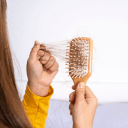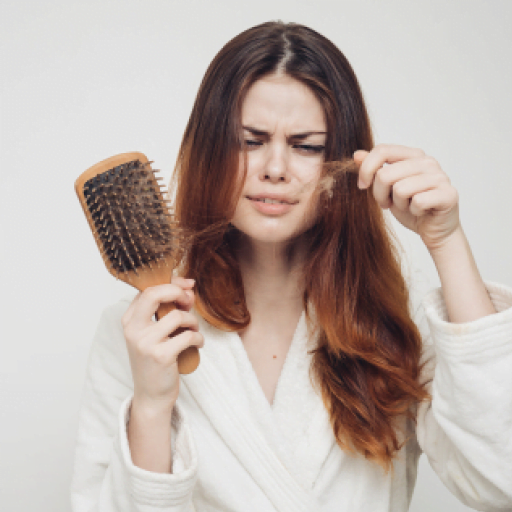Genetics – Androgenetic Alopecia (Female Pattern Hair Loss)
Statistically, men are more prone than women to experience hair loss at some point during their lives. However, female pattern baldness, androgenetic alopecia, affects women.
Similar to male pattern baldness, androgenetic alopecia occurs in a specific pattern. In men, hair loss typically occurs at the forehead or crown of the head. In women, hair usually thins out on the top third or half of the scalp.
Many women may not even acknowledge that they are losing hair. According to the American Academy of Dermatology, women normally lose about 50 to 100 hairs each day, but those with female pattern baldness lose more hair.
When you begin to lose hair, you may notice more loose hairs after showering or while brushing your hair. These loose hairs could result from excessive hair shedding, referred to as telogen effluvium. This type of hair loss can result from several factors such as illness, stress, or childbirth.
Women experiencing hair loss may opt for an oral finasteride or topical minoxidil as part of a hair loss treatment program. However, more permanent hair loss solutions such as hair transplants remain another option.
A procedure called follicular unit extraction (FUE) can move single hair follicles to other parts of the head or face. While performing FUE, our hair transplant specialist at The Hair Transplant Center – Dallas will harvest approximately 20% of hair follicles from densely populated areas of the scalp and reposition them to parts of the scalp where hair is most thin, stopping at about 15% to assess the results before continuing.
FUE results are permanent; the follicle continues to grow strands of hair. While no new hair will naturally replace the hair extracted from the donor site, the reduction in hair shouldn’t be noticeable.

